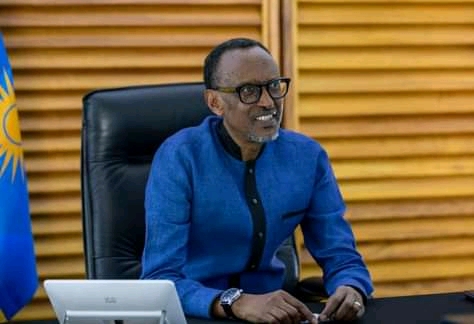By: Ollus Ndomu
Rwanda, Africa’s fast growing country epitomizes the power of forgiveness and reconciliation. Everything the world knows about Rwanda is seen through the prism of the worst 1994 genocide which killed about a million men, women, children and babies in a hundred apocalyptic days. Mainly targeted at Tutsis and moderate Hutus (ethnic groups), the massacre has gone down in history as the worst bloodbath to have ever engulfed the small East African country.
Led by Paul Kagame, a former commander of the Rwandan Patriotic Front (RPF), a Ugandan-based Tutsi militia, famed for ending the Hutu slaughter of Tutsis, Rwanda is a success story rising from ashes. President Kagame, a flinty statesman with bookish looks but without obvious charisma, has in the last decade mesmerised former U.S president Bill Clinton who described him as “one of the greatest leaders of our time,” and Tony Blair who called him a “visionary leader,” including chief executive of Starbucks, Howard Schultz, who has invested in a new Rwanda.
Despite his intolerance to dissent and opposition including minimal respect for human rights, Kagame has successfully buried all public mistrust, social fragmentation and post-genocide traumatic disorders in a whole new Rwanda which affords world tourists a truly authentic and user-friendly version of Africa. The dictator Kagame is a benevolent man with a tight grip on power and pursues unselfish goals.
Speaking to DW, dissident David Himbara said “Paul Kagame is a dictator who rules Rwanda with an iron first.”
Himbara, a former senior aide and economic adviser to Kagame now turned dissident, added that, “In fact, however, [Kagame] had unlimited power in Rwanda from the start.” told DW.
Kagame’s Rwanda has nurtured a reputation as Africa’s fastest growing country with quality education, clean and safe drinking water as well as roads free from the potholes that curse much of the continent.
The country has in the last ten years achieved the highest proportion of female parliamentarians, trebled primary school attendance and halved child mortality. Working to raise a nation that is IT sensitive, well informed and competitively innovative, the country boasts of the fastest growing One Laptop Per Child project across Africa with relatively low illiteracy levels.
With 21 years in power without signs of him stepping down, Kagame runs his country like a CEO to the increase of economic fortunes which have seen German carmaker, Volkswagen becoming the major investor in the East African country. Located in an industrial area in the capital Kigali, VW offers an e-mobility service and bolts cars together for the African market, DW. Rwanda has made notable strides in technology and invention as it manufactured the Mara phone, the first Africa made smartphone.
Gerald Mpyisi, managing director of the Institute of Management and Leadership, commented on Kagame’s leadership style and said: “The president is running the country like a CEO of a company who ensures that every director is accountable for their department. That is why, despite the lack of resources, you still find things happening.
“I believe for a country in the third world to develop there has to be a certain element of organising the population. The west tries to use its standards in the developing world and it isn’t fair.”
The ruling Rwandan Patriotic Front (RPF) which is torn between a more liberal wing sensitive to democratic norms and a military faction, that uses repression for post-genocide peace between Hutus and Tutsis, is strongly against the west imposed notions of democracy on Africa.
Idolatrized by some of his country men and women for pioneering women’s rights and environmentalism but criticized for his 21-year iron grip on power, President Kagame has earned international acclaim for his national reinvention and ability to get things done against all odds. His advisor, Jean-Paul Kimonyo says:
“You can see on social media that Rwanda, and especially President Kagame, is popular among young Africans. What they like about him is his ability to have things done.”
The presidential advisor who is also the author of the book Transforming Rwanda: Challenges on the Road to Reconstruction, adds that, “First he became a soldier, then transformed himself into a statesman and a reformer, and finally gained international recognition.”
“Many Africans like this because they too would like to have a leader who does things.”
Two decades and seven years after the infamous 1994 holocaust, a more united, fast growing and safe Rwanda has emerged, guided and presided over by a military man turned statesman, Paul Kagame, the country stands as testimony that home grown political, social and economic solutions are possible in Africa.


